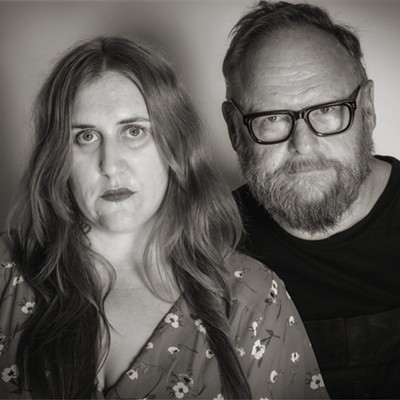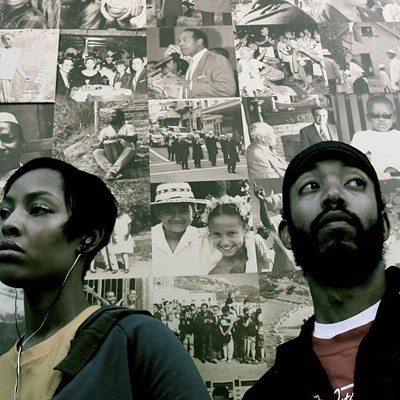But such a place exists, and it's called the Paul Green School of Rock Music, founded by seasoned musician and guitar teacher Paul Green.
"One day, I had some students over to my rehearsal studio to jam, and they sounded like crap," said Green. "I realized that all the scales and chords and all the good work I thought I was doing was sort of meaningless in the abstract, so every Saturday, we'd get together and play. And just a few weeks later, the opposite happened: They got amazing, and I realized that you need to actually play music to play music. ... I realized that all of the music schools are like practicing for a sports team but never playing games."
The first School of Rock opened in Philadelphia in 1998, and currently, there are more than a dozen branches all over the country, in places like New York City, Dallas, Las Vegas and Seattle; more branches are in the works. All kinds of students, ages 7-18, sign up for the school--everything from "straight-A students to dropouts, misfits, jocks, but mostly those kids who can't find their place elsewhere," said Green. "They can come to rock school and really have an identity. Instead of being little Joey the nerd, they're little Joey the kick-ass bass player, which is much better."
The students take lessons and participate in rehearsals for shows--real shows, at places like the Knitting Factory and CBGB's. And every September, auditions are held for the All-Stars, who get to go on tour.
"They have to have something about them that's fabulous," said Green. "Those are the kids that we take out. Also, they have to want a career in the music industry, so the All-Star students are rewarded because it's a training program for kids who are really serious about this."
This summer, there are two All-Star ensembles touring the country. The one coming to Solar Culture on Thursday, Aug. 10, is composed of 20 students, including CJ Tywoniak, who was featured in last year's documentary Rock School, and, according to Green, a drum prodigy, Dave Maruzella, and a girl named Courtney Cox.
"She's like a little Steve Vai; she's fantastic," said Green.
Every show is different: "We have a repertoire of 50 songs that we're taking on the road. We do a different set list every night depending on what the crowd is like, what the stage is like, and things like that, and it's everything from punk rock to prog rock, Zeppelin to Zappa," said Green.
But, admits Green, there is something a little un-rock 'n' roll about going to school to learn about it.
"We have lots of safeguards," explained Green. "All of our teachers are hairy, dirty, grungy rock 'n' roll types. For example, in New York, the rhythm section from Ween teaches for me. ... I have guys who've been in Extreme and Black Label Society. So our teachers are just older peers. Then, beyond that, that's the great myth of rock music--that it's a purely visceral art. ... We're really just a formal school, with hands-on training. We're like a photography school that teaches you how to use your shutter and how to develop, and then sends you out to shoot lots of pictures, which is how you learn to be a photographer."
Ultimately, Green's goal is to help encourage the creation of rock music that is sensitive to its history, and aware of its own complexities. Even though the school and the All-Star band play covers, all of the graduates go on to form their own original bands.
"We're very supportive of that, even though we don't touch it," said Green. "The problem with a 15-year-old is ... they don't have the life experience; their heart hasn't been broken yet, and as we both know, great art comes from broken hearts a lot of the time. So, while they're waiting to learn why the world really sucks, they're learning what chords to put behind that song that they will write.
"A lot of the original bands coming out of my graduates are fantastic. They're much more thoughtful and stage-ready than so many bands out there."











